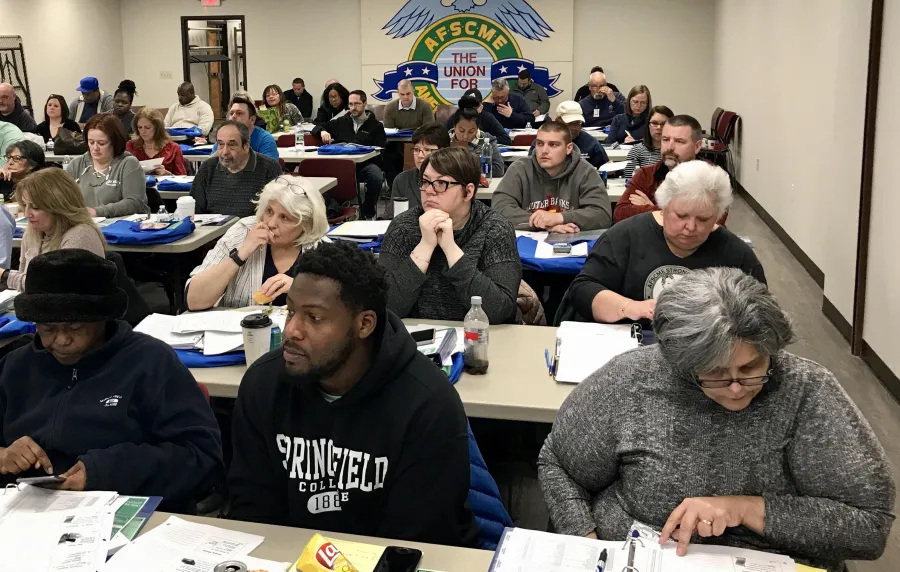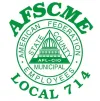Training Our Members To Be Union Advocates

Training union members to be strong advocates for their co-workers and defenders of their contractual rights and freedoms is a critical part of the AFSCME mission.
“Our union is only as strong as our activist core,” said Council 4 Education Coordinator Joe Aresimowicz. “That’s why we’re dedicated to providing training that meets the needs of our union members.”
The importance of our union-based training was on display March 13, when Council 4 and AFSCME International co-hosted a specialized financial standards and practices workshop for union treasurers, officers and trustees.
Facilitated by AFSCME’s William DePino, the day-long training provided more than 60 local union member-leaders with a comprehensive look into the roles and responsibilities that come with being a union Secretary-Treasurer or Treasurer.
The workshop explored subject matter like the AFSCME Financial Standards Code, Local Union Financial Report, Surety Bond Report and IRS 990-N Form.
- Click here for AFSCME’s Secretary-Treasurer Online Resource Center.
Council 4 members found the financial standards training valuable and informative.
“Few of us come into this role as financial professionals, but we have an obligation to do the job well and be fully accountable to our members,” said Josh Michalak, Vice President of Local 595 (City. Of Meriden). “This training gives us the tools to meet that obligation.”
“This workshop was excellent. It will help me meet the duties and responsibilities of managing our members’ dues dollars,” added Carmen Lasalle, Treasurer of Local 196 (State NP-3 Clerical).
Council 4 education modules are free to our members, and cover a wide variety of subjects, from officer and stewards training and grievance/arbitration preparation to time management and elder planning.
- Click here for a list of upcoming Council 4 training opportunities. These trainings are also listed on our web calendar.
Council 4 offers multiple education and training opportunities at our union headquarters in New Britain. “We are also happy to set up regional trainings closer to where our members live and work,” Aresimowicz added.
